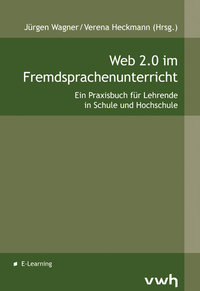
Podcasting on the go
by Simon Ensor
Web 2.0 im Fremdsprachenunterricht
I like the way Simon describes the smartphone, in his introduction, as a 'digital swiss-arny knife' that can be used for creative learning. Somehow that seems quite appropriate.
In the article, Simon focuses on Audioboo and Ipadio, two free applications, which can be used for developing 21st century skills such as content creation and collaboration. Easy tools to use for unplanned, impromptu recordings.
Audioboo
pros: adding geo-location or photo, create RSS feed, publish directly to social networks, embed in websites, record via phone and website
cons: all 'audioboos' are public, no private channels, can only be used on some phones, limit of 5min recording
Ipadio
pros: works on any phone, 60minute recordings, adding geo-location or photo, create RSS feed, publish directly to social networks, listen to 'plogs' live, option of moderated channels allowing an element of privacy, automatically generates transcripts, which can be edited
cons: record via phone only not website
Simon explaines that he used these tools for:
- recording 'model' answers for students and sharing this teacher RSS feed with students via google reader so they could download the content to their own phones.
- creating audio guides of locations or organisations
- getting students to record interviews and stories in class which were then shared through the student RSS feed
- creating a class audioblog where different students submit recordings each week
- recording interviews etc when on outings and trips abroad
- using a class ipadio account for students to post audio messages and 'correct' transcripts
- students to create and broadcast to their own radio channel or listen in to others.
- create learning diaries for eportfolios
In my own system, our students are allowed and invited to produce evidence of learning in different ways, in theory. However, in practice, it remains very much a case of written work only. For example in their work experience module the students have to produce a daily diary. This could just as easily be produced as a series of recordings as a written report. Invariably, the written report is provided! It seems that neither the students nor the educators are really looking to change the status quo.
But, as Simon demonstrates in his article, these tools clearly open up the possibility for students to easily record all sorts of learning material. Perhaps it is time to lessen our dependance on written work only!! It is now time for educators and students to be more willing to embrace the new possibilities.
For Simon, the benefits that accrued from using these tools included increased motivaton (as students were producing for a real audience), increased engagement through posting of comments, the ability to share students work and progress with parents, provision of permanent recordings for students that had missed class.
Although Simon doesn't mention any in the article, I would be interested in knowing about any drawbacks or teathing problems that he had in using the phones and Web2.0 tools with his students. Such things as
negative comments being posted, students not able or willing to make recordings, students posting inappropriate material or recording others without permission, parental permission not given, students not having an appropriate phone.
I believe using smartphones is certainly the way to go but what of now? The digital divide, even in this area, is alive and well. Simon indicates that only 30% of his students have smartphones, still a relatively small percentage of the class. By the time the other 70% catch up no doubt the 'early' adoptors will have moved on to newer and even more capable devices!
Simon's Webinar will take place on 6th December 2012. You can sign up now!!
You can now listen to the recorded webinar.
| You can buy a copy of the book online directly from the publisher (Verlag Werner Hülsbusch) or if you have any queries email Verlag Werner Hülsbusch at vertrieb@vwh-verlag.de |
***************************** The release of 'Web 2.0 im Fremdsprachenunterricht' is accompanied by a series of free webinars where the authors will present and discuss their articles.Information about these online meetings, which will be held in the presenter's mother tongue, can be found at Fremdsprachenunterricht 2.0 You can register for any of the webinars at Fortbildung Online. Recordings of the webinars will also be published on the LPM's website. ***************************** |

0 comments:
Post a Comment